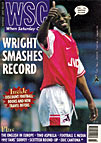 Playing in Europe is financially beneficial, but Mike Ticher remembers when money wasn't the driving force
Playing in Europe is financially beneficial, but Mike Ticher remembers when money wasn't the driving force
Chelsea are in Europe. Ho hum. Once I would have camped out overnight to see them play Slovan Bratislava, or even IB Vestmannaeyja. Maybe it will all seem different when it starts, but somehow the prospect of those Thursday night specials now fills me with little more than a nagging feeling that I’ve got better things to spend £21 on. European club competitions in their heyday were pure theatre. But one by one, for good reasons and bad, all the elements that made them so special have been leached away.
What made the idea of ‘Europe’ so fascinating? In the beginning there was the sheer novelty value of even seeing people from another country playing football. Until the 1950s, the only possible contact with foreigners for the vast majority of British people was in war. Beginning with the visit of Moscow Dynamo in 1945, football offered rare glimpses of otherwise un-imaginably exotic peoples, all the more so after the Iron Curtain effectively cut off half the continent.
By a happy coincidence, the development of floodlighting simultaneously made room in the fixture list for extra matches and created the visual motif for European football. As Eammon Dunphy put it, part of what drew Matt Busby so strongly to Europe was: “The kind of grandeur offered by the floodlit setting of a European night, the pomp and circumstance, the graciousness, the mutual respect, the contrast between all this and the drab unction of an English Saturday afternoon.”
But even for clubs like Manchester United, who became what they are largely through their involvement in Europe, it was a thrill rare enough to be savoured every time. Throughout the whole of the 1960s there were only 20 European ties at Old Trafford. It was the knowledge that future participation could never be guaranteed that helped give European nights their special tension.
Things began to change for the worse as early as the 1970s, as the “graciousness and mutual respect” wore thin, and English fans began to troop ever more frequently through Dover protesting ‘provocation’ after smashing up some unsuspecting continental city. But the home legs of European ties were still often a treat, for although the number of matches increased slightly as the UEFA Cup expanded, ‘Europe’ now acquired a new kind of scarcity value. Apart from the FA Cup Final, the only club games regularly screened live on TV in the ’70s were the European Cup Final and any other final involving an English club. And European highlights were the key to the popularity of Sportsnight.
Athough the initial novelty had worn off, there was still something enticing about watching British teams take on their European counterparts. It was partly the fact that they were still literally British, with very few exceptions. With English football in particular stuck in a mood of national self-flagellation from the mid-70s to the mid-80s, the sight of Eric Gates or Garry Birtles making a monkey out of supposedly superior ‘continental’ defences was enough to draw some bloody-minded sense of satisfaction.
It wasn’t until Heysel that all sense of theatre about European club competition died, or rather, became perverted beyond recognition. The event itself put a full stop at the end of the history of the European Cup. Although the name was still used afterwards, any resemblance to the adventure and idealism of the 1950s was purely coincidental. And by the time the ban on English clubs was lifted, changes were on the way which would ensure that there was no going back.
The magic of Europe has been taken away by familiarity. In some ways that’s a good thing. For most people a holiday in Europe is no longer a trip into the unknown. Even parts of the old eastern bloc are now common enough tourist destinations. Thanks to Channel 4 and Eurosport, domestic European football is readily available on TV. Most fans now appreciate that the Cup Winners’ Cup isn’t taken terribly seriously in many countries. And it’s that much harder to get excited about playing a ‘European’ team when Busby’s “drab unction of an English Saturday afternoon” has been replaced by a generous selection of Europe’s top players on permanent display. It’s no longer a matter of getting into Europe – we are Europe.
All that has made European competition less of a thrill. But it’s the diabolical tinkering with the three competitions by UEFA that has finally brought them close to the unthinkable: a meaningless bore. Until the admission of second-placed clubs to the Champions Cup, it was possible to pretend that the other two competitions still retained some semblance of coherence and credibility. But with the Cup Winners’ Cup further denuded of quality teams and the UEFA Cup bloated to the point of bewilderment, they have lost their essential logic.
It could be worse of course. Chelsea might win the League and feature live on TV with Bob Wilson 15 times a season. Now that really would breed contempt.
From WSC 128 October 1997. What was happening this month